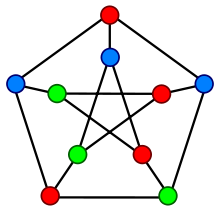Exploring Modern Graph Theory: Bridging Structure and Complexity

Introduction
Modern Graph Theory has emerged as a fundamental field bridging mathematical structures with complex real-world problems. From social network analysis, route planning, to computational biology, the applications of graph theory are vast and varied.
The Essence of Graphs
1. Basic Concepts
Graphs are mathematical structures used to model pairwise relations between objects. A graph is made of vertices (or nodes) and edges (or arcs) where each edge connects a pair of vertices.

2. Types of Graphs
- Undirected Graphs: Edges have no orientation.
- Directed Graphs (DiGraphs): Edges have an orientation.
- Weighted Graphs: Edges have weights associated with them.
Modern Developments in Graph Theory
1. Graph Algorithms
Various algorithms have been developed to solve problems related to graphs. For instance, Dijkstra’s algorithm finds the shortest path between nodes in a graph.
2. Graph Databases
Graph databases like Neo4j allow for efficient querying and manipulation of graph-structured data, facilitating the handling of complex relationships.
3. Network Analysis
Network analysis, a significant application of graph theory, helps in understanding the structure and dynamics of networks in social, biological, and infrastructure systems.
Challenges and Future Directions
1. Scalability
As real-world graphs can be extremely large, developing efficient algorithms and data structures to handle large-scale graphs is a critical challenge.
2. Dynamic Graphs
Real-world networks are often dynamic. Developing theories and algorithms for dynamic graphs is an exciting area of research.
Conclusion
Modern Graph Theory continues to grow, driven by real-world applications and theoretical advancements. Its interdisciplinary nature, bridging mathematics, computer science, and various other fields, highlights the richness and potential of graph theory in contributing to understanding and solving complex problems in modern society.